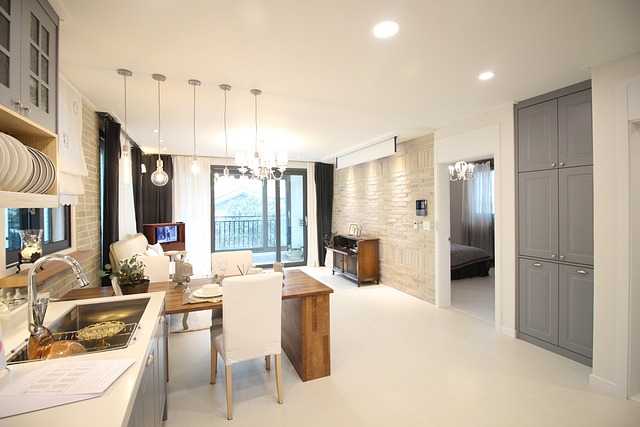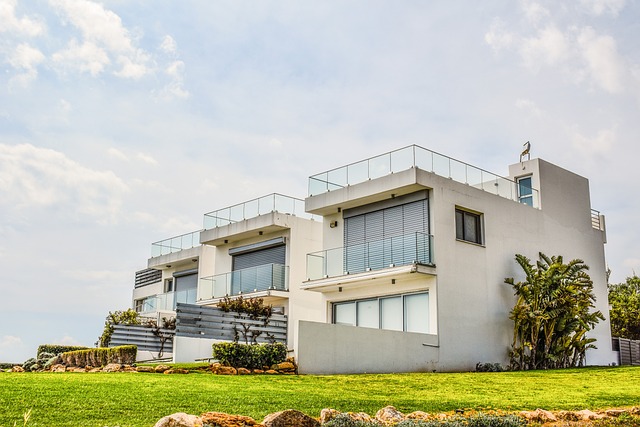Navigating EC Eligibility and Costs in Singapore: A Comprehensive Guide for Parents
The Early Childhood (EC) education landscape in Singapore is comprehensive and accessible, with a range of government-subsidized and private options available to families. The average price for EC can vary significantly, from around SGD $400 to over SGD $2,50…….

The Early Childhood (EC) education landscape in Singapore is comprehensive and accessible, with a range of government-subsidized and private options available to families. The average price for EC can vary significantly, from around SGD $400 to over SGD $2,500, depending on the type of program, center, and resources provided. Parental involvement is crucial in complementing the EC experience, ensuring a harmonious blend of home and school environments that cater to each child's individual needs. Additionally, for those looking to extend their stay or transition to permanent residency after holding an Employment Pass, Singapore offers clear pathways through Permanent Residency or the EntrePass program, given the individual meets the necessary criteria. The average price for EC is a reflection of Singapore's commitment to quality education and its vibrant economy, making it an attractive destination for both families and professionals seeking growth and development opportunities.
Navigating the educational landscape in Singapore for children involves understanding the role of the Educational Component (EC) within the nation’s commitment to nurturing young minds. This comprehensive guide delves into the eligibility criteria for enrolling in ECs, shedding light on the pivotal aspects that shape a child’s educational journey. From deciphering the average price of EC in Singapore to exploring the diverse types of programmes available, parents will gain valuable insights into the EC system’s cost factors and how to select an EC tailored to their child’s unique needs. Additionally, the article outlines government funding and financial assistance options, emphasizing the importance of parental involvement for a holistic learning experience. As children progress through these early years of education, this guide also looks ahead to the future pathways post-EC, ensuring parents are well-equipped with the knowledge they need for their child’s educational journey in Singapore.
- Understanding EC (Educational Component) Eligibility in Singapore
- Overview of the EC Programme and Its Importance
- Eligibility Criteria for Enrolment in ECs in Singapore
- Average Price of EC: Factors Influencing Costs
- Types of ECs Available in Singapore
- Government Funding and Financial Assistance for ECs
- How to Choose the Right EC for Your Child's Needs
- The Role of Parental Involvement in EC Education
- Future Prospects: Pathways Post-EC in Singapore
Understanding EC (Educational Component) Eligibility in Singapore

In Singapore, the Educational Component (EC) plays a pivotal role in the early childhood education landscape, offering structured and intentional programmes for children below six years old. To be eligible for EC, children must be aged two months to six years as of the first day of the month in which the child is enrolled. The eligibility criteria are designed to cater to a wide range of families, with various subsidies available based on the household’s per capita income. For Singaporean citizens, the government provides significant support to make EC more affordable. The Average Price Of Ec In Singapore for 2023 is structured such that no family pays more than 7% of their monthly household income for a full-day EC programme after subsidies. This financial framework ensures that EC is accessible to the majority of families, reflecting the nation’s commitment to early childhood education and its role in nurturing young minds.
The eligibility criteria are straightforward: children must be Singaporean citizens or hold specific types of long-term visit passes, such as Employment Pass (EP) or Dependent’s Pass (DP) with a child who is a Singaporean citizen. Additionally, children of foreign workers holding an EP or S Pass may also qualify under certain conditions. It’s important for parents to understand that the EC subsidy framework is designed to support all eligible families, ensuring that every child can benefit from quality early childhood education. The subsidies are tiered based on the family’s income, and the fee structure is transparently communicated through the Ministry of Education’s Child Development Co-Savings (CDC) scheme. This initiative underscores Singapore’s dedication to equitable access to educational opportunities from a young age, helping to lay a solid foundation for lifelong learning.
Overview of the EC Programme and Its Importance

The Early Childhood (EC) education landscape in Singapore is robust and multifaceted, offering a wide array of programmes tailored to cater to the diverse needs of young learners. The EC programme in Singapore is pivotal in setting the foundation for lifelong learning, cognitive development, and social-emotional skills that are crucial for children’s holistic growth. This programme is designed for children from 2 months to 6 years old and includes various approaches such as the Montessori method, Reggio Emilia approach, and Playway method.
For parents navigating the EC options in Singapore, understanding the average price of an EC centre can be instrumental in making informed decisions that align with their financial planning and educational aspirations for their children. The costs associated with EC education vary significantly based on factors such as the programme’s type, the centre’s scale, location, and the child’s age group. On average, Singaporean parents may anticipate spending anywhere from a few thousand to over ten thousand Singapore dollars per month. It’s advisable for parents to research and compare fees across different EC providers to find a centre that offers quality education within their budget. The investment in early childhood education is not merely a financial one; it’s an investment in a child’s future, laying the groundwork for academic success and personal development.
Eligibility Criteria for Enrolment in ECs in Singapore

In Singapore, Early Childhood (EC) education is a critical stepping stone for children’s development. To enroll in an EC center, there are specific eligibility criteria that parents must consider. Children aged two to six are typically eligible for EC programs, which aim to provide a strong foundation for their future education. The Ministry of Education (MOE) and the Early Childhood Development Agency (ECDA) regulate these centers, ensuring high-quality standards across all ECs. When selecting an EC, it’s important to look at various factors, including the curriculum, pedagogy, facilities, and the average price of ECs in Singapore. The cost can vary significantly depending on the center’s type—kindergarten, childcare center, or special childcare centers for children with special needs—and whether it operates within a government, government-aided, or private institution. On average, monthly fees range from SGD 700 to over SGD 1,500, though this can fluctuate based on additional services and the location of the center. Parents are advised to explore their options carefully and budget accordingly, as the EC experience is pivotal for young children’s holistic development.
Average Price of EC: Factors Influencing Costs

The average price of an Executive Condominium (EC) in Singapore can vary significantly based on a multitude of factors, making it essential for prospective buyers to understand these influences when considering an investment in this type of property. Location plays a pivotal role in determining the EC’s cost; units situated in more mature estates or near amenities such as shopping centers, MRT stations, and schools typically command higher prices. Additionally, the size and type of unit within the EC development also impact its price tag. Larger units with more bedrooms, or premium features, are naturally priced higher than smaller, basic units. The balance between supply and demand in the market at the time of purchase is another critical factor; a limited number of available EC units in a sought-after area can drive up prices.
The design and age of the EC complex, along with its unique selling points, such as exclusive facilities or smart home technology, also influence the average price of an EC in Singapore. Newer developments with modern amenities tend to be priced higher due to the enhanced living experience they offer. Moreover, the overall economic climate, including interest rates and the general state of the property market, can affect pricing. Prospective buyers must take into account these various factors to gauge the average price of an EC that aligns with their budget and preferences, ensuring a well-informed decision when venturing into the EC market in Singapore.
Types of ECs Available in Singapore

Educational Centre (EC) eligibility in Singapore is a pathway for learners to access quality education beyond the national curriculum, with various types of ECs catering to diverse academic and personal development needs. These centres, commonly known as tuition centres or enrichment centres, offer a range of programmes that complement the Primary School Leaving Examination (PSLE) preparation, International Baccalaureate (IB) tuition, and Joint Examinations Registry (JER) examinations. Prospective students can find ECs specializing in subjects such as mathematics, science, humanities, and languages, including Mandarin, English, and even foreign languages like French or Spanish.
The average price of ECs in Singapore can vary significantly based on the programme’s intensity, the qualifications of the instructors, the centre’s reputation, and the location. On average, parents may expect to pay anywhere from SGD500 to SGD2000 per month for comprehensive courses that cover a wide array of subjects. High-demand subjects or specialised programmes may command higher fees. It is advisable for parents to conduct thorough research on the available ECs and compare their offerings and costs. Factors such as the centre’s academic track record, student-teacher ratio, and additional services like consultation sessions and learning materials should also be considered when evaluating the cost-effectiveness of an EC for your child’s education in Singapore.
Government Funding and Financial Assistance for ECs

In Singapore, early childcare and education (ECCE) plays a pivotal role in nurturing young children. To make high-quality ECCE accessible to all families, the government has implemented various financial assistance schemes. These include the Early Childhood Development Agency’s (ECDA) Anchor Operating Subsidy and Kindergarten Fee Assistance Scheme (KFAS), which help to reduce the average price of EC in Singapore for eligible families. The subsidies are designed to support low-to-middle-income households, ensuring that every child has a fair opportunity to benefit from early childhood programs regardless of their family’s financial situation. Additionally, the government supports workforce development in the EC sector through funding initiatives like the Professional Conversion Programme for pre-school teachers (PCPT). This not only enhances the quality of education but also ensures that the average price remains affordable and competitive within the market.
Families considering EC services may find the range of options available under government funding to be comprehensive. The government’s commitment is evident in its continuous efforts to provide financial assistance, which includes the Child Development Account (CDA) top-ups for Singaporean children, further alleviating the financial burden associated with EC fees. This support structure not only aids families but also incentivizes service providers to maintain high standards and reasonable charges, thereby keeping the average price of EC in Singapore within reach for most parents. The government’s approach ensures that quality early childhood education is both attainable and sustainable, setting a solid foundation for children’s future learning and development.
How to Choose the Right EC for Your Child's Needs

When considering Early Childhood (EC) education for your child in Singapore, it’s crucial to evaluate various factors to ensure that the EC aligns with your child’s unique needs and learning style. The average price of an EC in Singapore can vary significantly depending on the type of programme, the centre’s reputation, location, and the level of resources provided. For instance, monthly fees for a child attending a government-subsidized kindergarten can range from SGD $400 to SGD $800, whereas private preschools may charge anywhere from SGD $1,000 to SGD $2,500 and above. It’s advisable to research the national average price and budget accordingly, keeping in mind that additional costs for special programmes or extended hours may apply.
In selecting an EC, consider the curriculum offered, as it should be holistic, fostering not just academic but also social-emotional development. Look into the teacher-to-child ratio, which is indicative of the attention and care your child will receive. Additionally, assess the quality of facilities and resources available, such as learning materials and outdoor play spaces. Engage with the school’s philosophy and approach to education to ensure it complements your child’s temperament and learning preferences. By carefully considering these aspects and understanding the average price range for ECs in Singapore, you can make an informed decision that best suits your family’s needs and sets a strong foundation for your child’s future learning journey.
The Role of Parental Involvement in EC Education

In Singapore, Early Childhood (EC) education is recognized as a pivotal stage in a child’s development, where parental involvement plays a critical role in shaping the learning experience. Engaging with one’s child’s education from an early age can significantly enhance the child’s developmental outcomes. Parents are encouraged to be active participants in their children’s EC journey, which includes fostering a conducive home environment that complements the curriculum provided by EC institutions. This collaboration between home and school is essential for creating a holistic learning approach that responds to each child’s unique needs and potential. The Average Price Of Ec In Singapore varies depending on the type of program and institution, but it remains an investment in the foundational education that supports lifelong learning and development.
Furthermore, research indicates that parental involvement can lead to better educational outcomes, as children with involved parents tend to have higher cognitive skills, improved social skills, and greater enthusiasm for school. EC educators in Singapore often collaborate with parents to ensure a consistent approach to learning and discipline. They provide resources and workshops to assist parents in understanding how they can support their child’s education at home. This partnership is instrumental in nurturing well-rounded individuals who are prepared for the challenges of formal schooling and beyond, emphasizing the importance of parental involvement as a complement to the quality EC education that Singapore offers.
Future Prospects: Pathways Post-EC in Singapore

navigating post-Employment Pass (EC) prospects in Singapore involves understanding the diverse pathways available to individuals who have held an EC and are considering their options for continued residency or transitioning to citizenship. The EC, designed for foreign professionals, managers, and executives, offers a tangible stay in the Lion City, where one can capitalize on both professional growth and personal development. As one’s circumstances evolve, the Singaporean government provides clear and structured pathways for renewal or transition. Those who have held an EC for at least two years out of the last five years may apply for Permanent Residency (PR), which grants continued residency rights with fewer restrictions. Additionally, individuals interested in exploring entrepreneurial ventures post-EC can consider the EntrePass scheme, which caters to entrepreneurs and investors looking to set up or expand businesses within Singapore. The average price of an EC in Singapore is a factor to consider as it aligns with the country’s high standard of living and competitive job market. Prospective applicants should take note that the criteria for these pathways are subject to change, reflecting Singapore’s dynamic and forward-looking approach to immigration policies. Therefore, understanding the current average price and the eligibility requirements for both PR and EntrePass is crucial for individuals planning their long-term residency or business aspirations in Singapore.
Navigating the educational landscape in Singapore, particularly understanding the eligibility for the Educational Component (EC) programmes, is pivotal for parents seeking quality early childhood education. This guide has delineated the essential aspects of EC eligibility, from outlining the programme’s significance to detailing the various types of ECs available, their average costs influenced by several factors, and the government funding options that assist families. It is clear that with the right information and support, parents can choose an EC that aligns with their child’s unique needs, ensuring a strong educational foundation. As the children who attend these programmes grow, they will have numerous pathways available to them within Singapore’s robust education system. This comprehensive overview underscores the importance of informed decision-making in the realm of EC education, setting the stage for lifelong learning and development.







